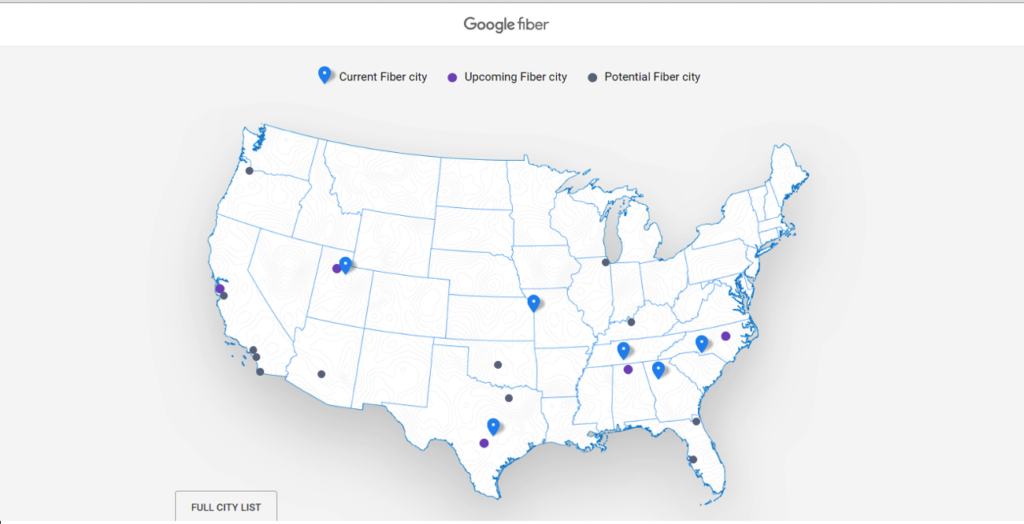The motive behind Google entering the internet carrier business has been a point of contention for many. Including yours truly, many in the tech world believed that Google was so disappointed with the internet speeds offered around the country by existing carriers that they felt things wouldn’t change unless somebody acted first.
If that had been their objective, we can easily conclude that they have already scored a victory – because this is what happened:

AT&T launched its GigaPower Network in 2015 with speeds up to 1 Gigabit per second.
“AT&T, GigaPower Network is already in 25 major metropolitan areas and is expanding to an additional 31, many of them this year. AT&T is also experimenting with a 5G wireless service in Austin with speeds of up to 14 gigabits per second in early tests.”
Dennis Kish, vice president of Google Fiber told USA Today
“It is indeed a real business, and it’s serving to increase competition as well, and that’s something that we don’t mind. We think it’s healthy for the market and for consumers.”
During the first quarter of 2016, Alphabet poured in $280 million in capital expenditures related to Google Fiber, which sits in Alphabet’s Other Bets category – and possibly the only bet to have a real shot at making some money for the company. But this is a capital-intensive business with big pocket competitors. Despite entering the race six years ago, Google has been terribly slow in its roll out and is currently only available in Pravo, Kansas City, Nashville, Atlanta, Charlotte and Austin. The company is in discussion with a few more cities for Google Fiber rollout, but a rate of six cities in six years is just seriously wrong if they are indeed serious about this bet.

But this has been the case with most of the products Google has launched in the past. Outside of Google Search, Google Maps, Android and Google Apps, the company is yet to create a single product that is worthy of our time. This despite the fact they kept constantly trying out new things. Google Fiber is indeed a wonderful opportunity for Alphabet to create a proper business line that can sit outside the search business and provide some diversification and a moat for the company, but it’s not an easy business to build – and they had six years in which to learn that.
Not only is it capital-intensive, but it is also slow, and there will be plenty of regulations and local issues to overcome. Google needs to deal with all of that while at the same time trying to take the wireless route to get ahead of the competition.
But whatever they do, they need to do it fast because they’ve already woken up the sleeping giant that is AT&T. If Google Fiber can’t run away with the giant’s golden goose, then its days may well be numbered.


